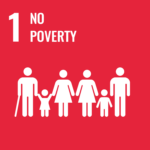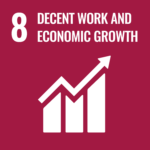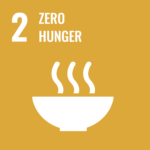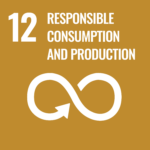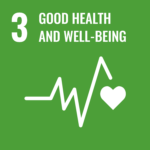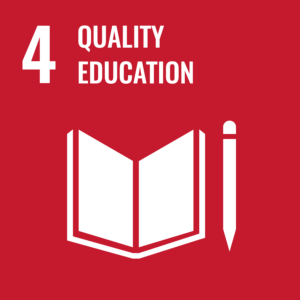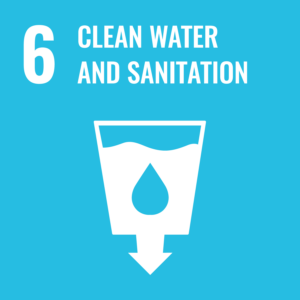Here at SPANA we recognise that the impact of our work extends far beyond improving the health and welfare of working animals, because of the vital contributions these animals make to human livelihoods and wellbeing.
Working animals plough fields, transport goods to market and transport people to work, school and hospitals. They contribute to national economies by allowing people to participate in work. They reduce the burden of household tasks such as collecting firewood and water. And in many of these countries they are an integral part of daily life and culture.
Working animals make a vital contribution to low-income countries, and by doing so play a key role in achieving the United Nations’ Sustainable Development Goals. SPANA is working at national and international levels to highlight the strong links between working animals and the Sustainable Development Goals (SDGs), using examples of our work to demonstrate our ideas in action.
SDG: No Poverty
SDG: Decent Work and Economic Growth


Working animals enable people to generate an income, strengthening livelihoods and contributing to poverty reduction and economic growth.
The SDG in action: In Bamako, Mali, the use of donkeys to collect and transport the city’s rubbish helps earn their owners more than three times the monthly income per capita. SPANA actively enables this work through our provision of free veterinary treatment and care to these hard-working donkeys.
SDG: Zero Hunger
SDG: Responsible Consumption and Production


Working animals play a vital role in food production, providing draught power where agricultural machinery is not readily available. They transport goods to market and generate income that families can spend on food.
The SDGs in action: 73 per cent of people we surveyed in Shashemene, Ethiopia, used working animals in agricultural activities or to carry food produce to market. SPANA actively supports these working animals through the provision of a mobile clinic which visits the area regularly. In 2023, we helped 1199 animals in the region by providing free veterinary care and advice.
SDG: Good health and Wellbeing

Working animals enable families and individuals to earn a living, which in turns pays for any medicines and hospital treatment they might need. Animals also transport people to hospital and medical centres, including pregnant women, the sick and elderly. By supporting working animals, we help the families and communities that depend on them.
The SDGs in action: SPANA’s work in Tanzania reached over 90,000 working animals between 2021 and 2023. , while our radio-based animal welfare training and advice sessions had a reach of more than one million animal owners. Through our ongoing support of working animals in a country with very limited veterinary services, we have ensured their owners have been able to continue making a living for themselves and their families.
SDG: Quality Education

The role of working animals in transporting people can include taking children to and from school. Without this, many children in low-income communities would be deprived of an education.
The SDG in action: Remote communities in Costa Rica rely on working animals to access primary and secondary education, transport would be impossible without the use of their horses. We ensure these animals are able to continue their vital work through the provision of free veterinary care and support to these animals.
SDG: Gender equality

Working animals allow women to participate in work and reduce the burden of household tasks such as collecting firewood or water.
The SDG in action: SPANA has funded a solar-powered water pump in drought-stricken Turkana, Kenya. Performing work that was traditionally the responsibility of women, the pump significantly reduces the time, distances and dangers faced collecting water. Women are encouraged to become active members of the managing committee, and with their basic need for water now being met, many are empowered to start their own businesses and consider options for sending their children to school.
SDG: Clean Water and Sanitation

Working animals are frequently used to reduce the burden of collecting and carrying water, for drinking as well as washing and agricultural purposes.
The SDG in action: In Nouakchott, Mauritania, SPANA actively supports donkeys who can carry over 400 litres at a time, supplying water to the majority of households and businesses in a capital with a population of approximately one million people.
SDG: Climate Action

Working animals offer an all-weather carbon neutral form of transport and enable livelihood diversification that can help people adapt to changes brought about by climate change. As working animals are replacing the work of agricultural machines and vehicles, they can also contribute to climate change mitigation.
The SDG in action: In 2018, thousands of people and animals were affected by extensive flooding in Odisha, India. Those that survived were exposed to disease outbreaks and left suffering with no food, clean water, shelter or veterinary care. Extreme climate events leading to the loss of working animals contributes to reduced agricultural productivity; this in turn results in reduced food security, reduced crop residues, reduced livestock productivity and increased demands on other feed sources. Including working animals in disaster planning and response strategies helps build community resilience to extreme climate events. We continue to support working animals through our partners in Odisha to ensure communities and their animals are prepared for these events.
You can find out more about how working animals deliver for sustainable development here.

